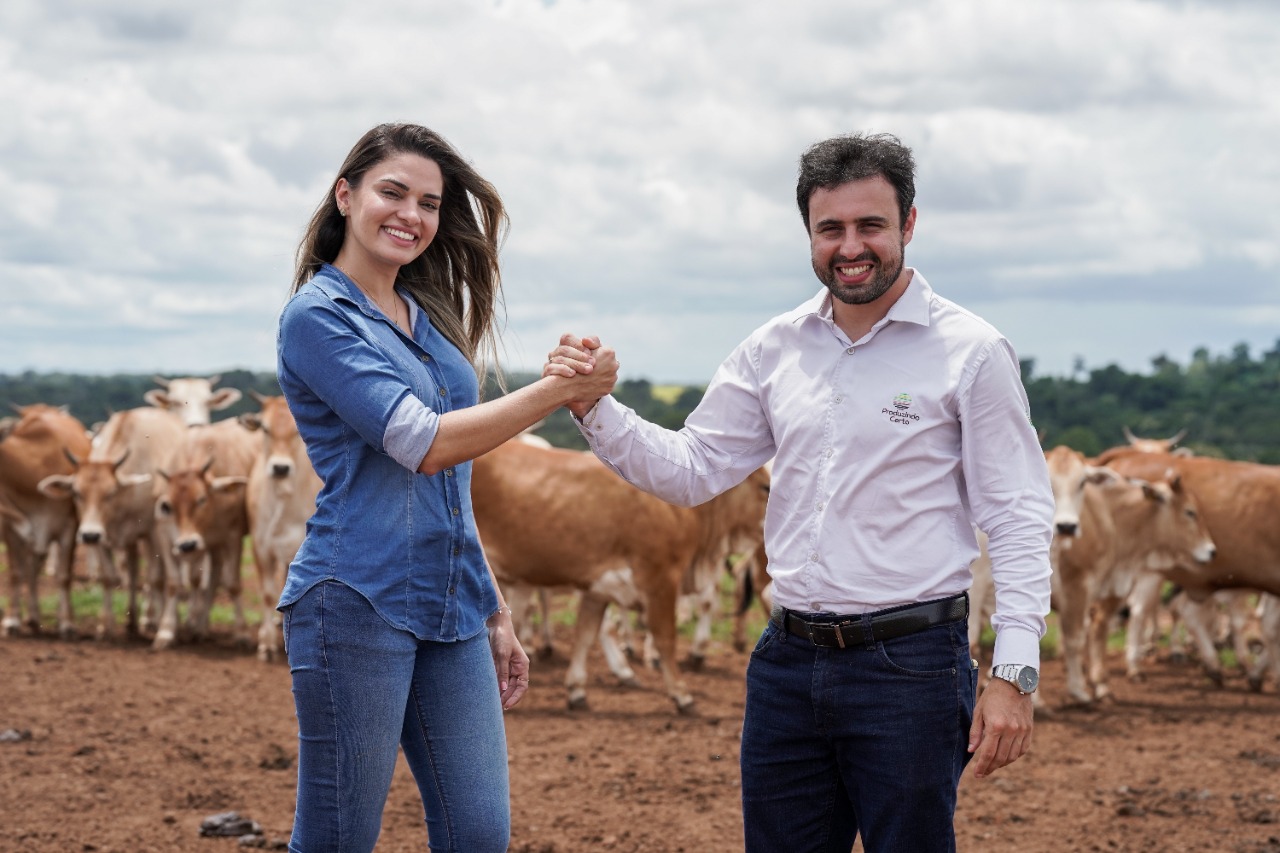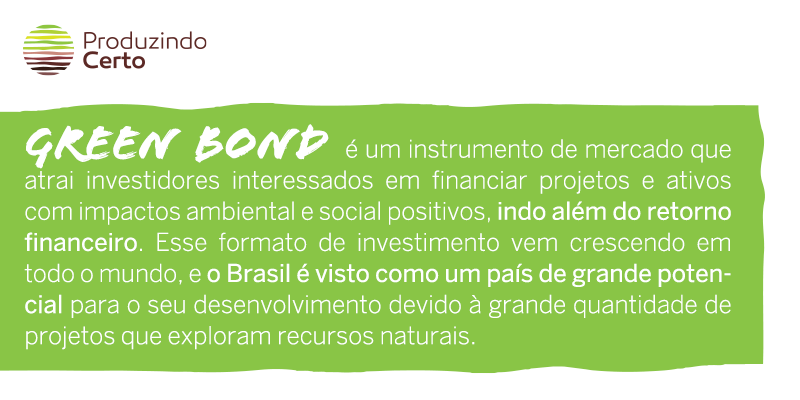
Produzindo Certo enters into an unprecedented partnership to offer rural credit from the issuance of green finance

At the start of the second half of each year, rural producers across Brazil prepare for a new crop year. There are dozens of decisions to be made before starting to plant, from the area to be cultivated to the seed to be used. Perhaps the most strategic of these decisions are those that involve financing of the production. This is the time to talk to banks, check interest rates, define amounts, and sign contracts. Before all that, however, it may be wise to do a little more research. New players with new forms of agricultural credit promise to cause a revolution in the sector this year, opening opportunities for transactions that involve less bureaucracy and more benefits to producers.
This is a green revolution, with responsible production and environmental conservation practices as a backdrop. Funding resources would come from green bonds, which have been issued for over a decade. Currently, they are mostly used in the areas of renewable energy and pulp and paper. But specialists and the Brazilian Ministry of Agriculture, Livestock and Supply (MAPA) point out that it is in agriculture that the green finance market has great growth potential, driven by the use of modern technologies, sustainable practices in the fields, and increased productivity.
To bolster this capacity, in June MAPA launched the Sustainable Agribusiness Investment Plan to attract foreign investors, support environmental services developed in the fields, and strengthen the image of agricultural production. During the webinar to launch the plan, Minister Tereza Cristina mentioned measures such as production in degraded areas, which allows for the preservation of 66% of the national native vegetation, and technologies for the rearing of healthy animals from Crop-Livestock-Forest Integration (ILPF) systems, which have made Brazilian agriculture one of the most sustainable in the world. “We need the development of green agribusiness financing as a strong driver for this scenario to materialize,” he said.
Credit for those who produce right
The market has been moving toward meeting the Minister’s demand and the demand of the entire agricultural sector, as well. One of the first movements involves Produzindo Certo, Traive Finance—a FinTech focusing on agribusiness—and Gaia Securitizadora, one of the leaders in the Certificates of Agribusiness Receivables (CRAs) market. The three companies entered into a partnership to put together and launch, as early as during this harvest, the first issue of agricultural green bonds in Brazil. And, using the funds captured from the operation, format an unprecedented agricultural credit model for rural producers.
Anyone who follows the daily routine of crops and pastures across the country is well aware of the difficulties farmers and ranchers face. It is this knowledge, combined with the financial market experience of these partners, that Produzindo Certo expects to reflect in this credit line. The companies carried out surveys with rural producers to support operational planning. Based on these surveys, they designed a model with less bureaucracy and guaranteed interest rates equal to or lower than conventional agricultural credit lines. Additional benefits include greater predictability in contracts of up to three years and a production insurance option that addresses the specific needs of rural producers.
The project is in the funding phase. The first issuance of green bonds is expected to occur in the second half of the year, which would allow resources to be released to producers before the end of the year, in time for investments in this harvest. The credit for farmers and ranchers must be used to finance production and social and environmental adjustments; the latter is a mandatory consideration for green financing.
For producers registered on the Produzindo Certo platform, who already have management and verification and monitoring mechanisms to validate the social and environmental advances in their properties, the opportunity is even more attractive because this is a fundamental requirement to enter the market.
The first initiative estimates a total of R$ 100 million for investments, which would be used to finance up to 50 producers. But the model already expects a gain in scale that will allow the future inclusion of all participants of the Produzindo Certo platform, which today comprises 1,500 properties.
In the project, each company involved will act within their field of expertise, ensuring efficiency and lower costs in the processes, which result in more attractive opportunities for both investors and producers. Specializing in structuring securitization operations, Gaia will act to structure and implement the green operation. Traive, on the other hand, is responsible for structuring, modeling, and distributing loans through its digital platform. This platform is designed to simplify risk analysis processes and help reduce bureaucracy in the agricultural credit and insurance markets. “The aggregate knowledge of the partners involved and the verification mechanism already adopted on the Produzindo Certo platform makes the process even simpler”, explains Luís Eduardo Lapo, Risk Director at Traive.
One of the appeals of the model designed by the partnership is the offer of three-year loans, where the approval process carried out in the first year simplifies obtaining additional amounts for the rest of the period. In addition to greater predictability, this ensures clarity on interest rates. “The SELIC rate has dropped in recent years, reaching a historic low. There is no consensus about what will happen in the coming years, especially in the current context, and contracting loans for longer periods protects producers from possible volatility”, explains Lapo.
Offering the lowest possible interest rate is also part of the objective. “There is much interest in this market. We are also looking to involve so-called impact investors, who seek more than a financial return on their investment, and also monetize gains in forestry and conservation of natural resources, in order to secure good interest rates for producers”, adds Aline.
Tailored agricultural insurance
Another benefit offered by the model developed by Produzindo Certo and its partners is the agricultural insurance, which brings financial innovations to cater to the main needs of rural producers. Among its differentiators is greater flexibility in the production volume to be insured. In place of traditional insurance conditions that work with market averages and are commonly not suitable for the best producers, customized terms for each farm are adopted, making insurance more effective and affordable. Producers will also have support, from initiating the insurance through activation of eventual claims, simply and without bureaucracy.
To issue these innovative and unique insurance products in the Brazilian market, we rely on Munich Re. Traive works on the modeling of customized conditions jointly with Munich Re, which in turn guarantees efficient processes with all the security and liquidity that only one of the largest reinsurance companies in the world can offer.
For more information on agricultural credit with Green Finances, contact Produzindo Certo. Click here to talk with our team.


